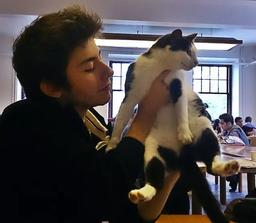And lastly:
var
| Varsa bir Türk kahvesi alabilir miyim? | If there is, can I get a Turkish coffee please? |
| Biraz cesareti varsa o işe başvurur. | If he has a little bit of courage, he will apply for that job. |
yok
| Bu malzemelerden biri yoksa pasta yapamayız. | If there isn't one of these ingredients, we can't bake a cake. |
| İştahınız yoksa restorana gitmeyelim. | If you don't have the appetite, let's not go to the restaurant. |
Normally, two copulae do not go together because there is only one slot for them. However one exception is when they combine with conditional copula. Past copula and evidential copula can combine with conditional copula but there's no consensus as to what the default form is. So when you attach the suffix, we sometimes break it apart and use the ise form. Check out the examples.
-(y)Dİ
| Ali buradaydı ise niye yardım istemedin? | If Ali was here, why didn't you ask for help? |
| Deniz katili biliyorduysa yargıç onu suçlu bulacaktır. | If Deniz knew the killer, then the judge will find her guilty. |
Notice that in the first example, the compound form would be 'buradaydıysa'. Although some people find it strange, everybody agrees 'buradaydı ise' is right. In the second sentence, both copulae attach because it's a verb. Generally, it is always safe to break it apart and make the conditional copula stand on it's own. Mostly you can combine them too, but not always. Be ready to see both usages by native speakers, and remember to practice!

